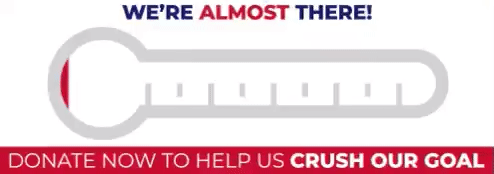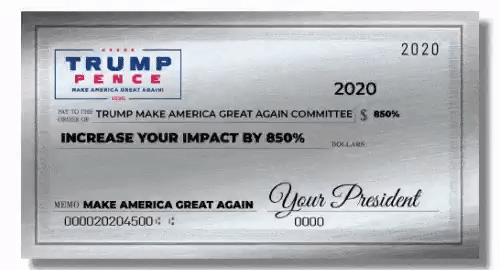Inside Trump's insane email marketing campaign
CONGRATULATIONS! YOU ARE THE TRUMP PATRIOT OF THE WEEK!
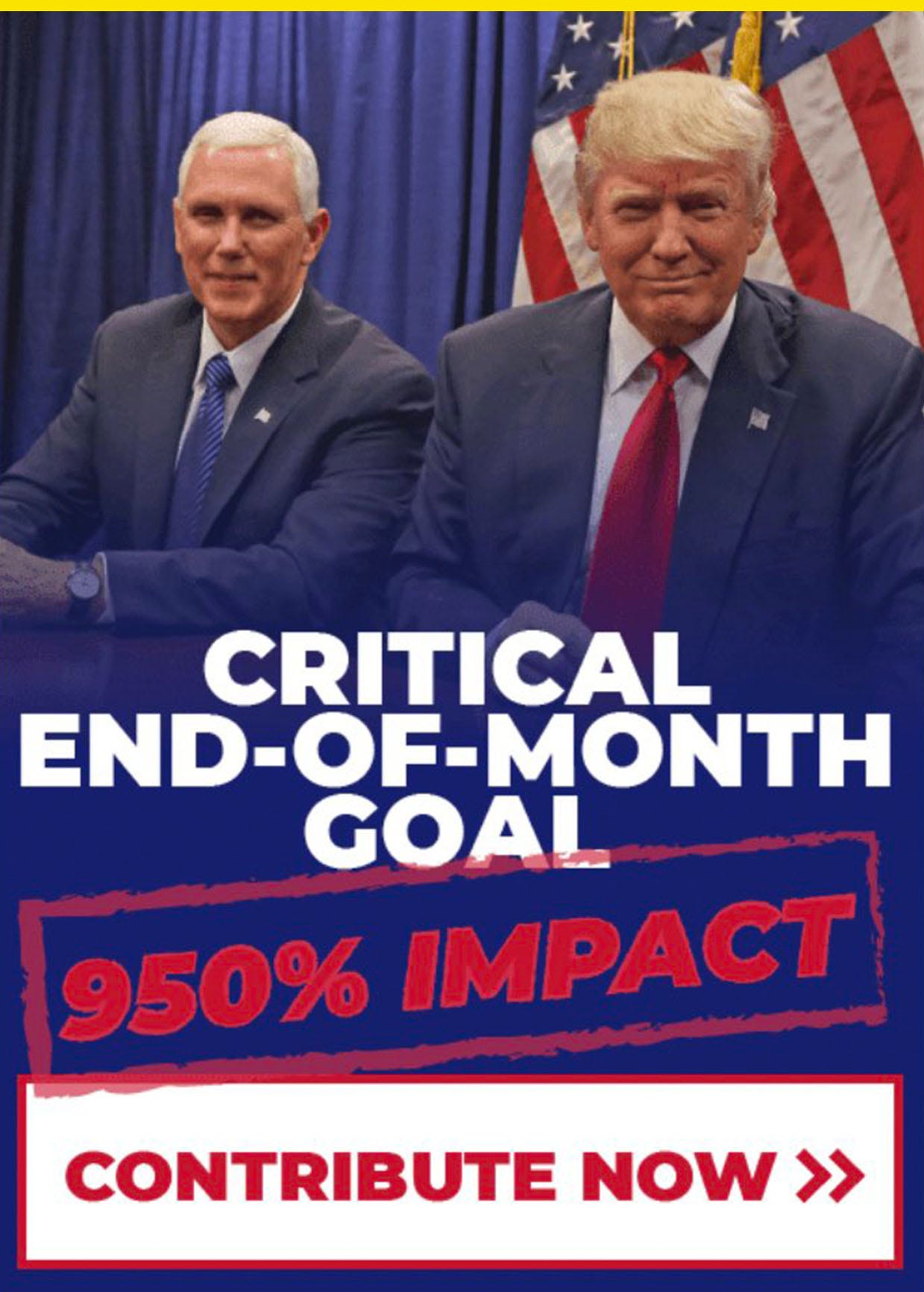
President Trump’s campaign floods subscribers’ inboxes with lots of emails. Like, a lot. These Trump emails are written with flashy subject lines and they make false claims about scarcity, exclusivity, and familiarity. In other words, they’re a lot like Trump.
“The Trump campaign's email marketing tactics mirror the rest of the campaign, repetitive and boisterous,” said PJ Howland, vice president of industry insights at 97th Floor, a marketing agency, in an email.
97th Floor analyzed Trump and former Vice President Biden’s campaign mailing lists after donating $100 to each campaign. The firm found Trump sends 2.7 emails a day on average and as many as seven or eight emails on their highest-volume days, while Biden sends about one email every other day, though occasionally he sends emails two days in a row.
Trump’s open-rate tactics
It’s not just the volume of email that Trump sends that sets him apart from Biden, it’s the ways his campaign convinces subscribers to open them.
Trump’s campaign sometimes uses bait-and-switch tactics to get subscribers to click open. On an almost weekly basis, the campaign has sent out emails with subject lines like “Supreme Court Choice Attached,” or “Convention Speech Attached.” There were, however, no such documents attached and the emails instead just asked for donations.
Trump’s emails also read differently than Biden’s. Biden’s subject lines avoid all caps, emoji, and inconsistent punctuation, and they address the subject by name almost one third of the time. Meanwhile Trump is heavy on emoji usage and his subject lines are garish and less professional. Trump’s emails use all caps, countdowns, deadlines, and switch messaging, according to 97th Floor.
As a long-term strategy, Trump’s tactics might not be an effective plan, but since campaigns are limited-run, Trump only needs to keep subscribers opening and donating until Election Day.
“Given Trump's hyper-engaged core audience, the ‘Patriots’ as he calls them, these emails are likely doing their job of raising funds,” Howland said. “However these would not serve as ‘best practices’ in most any other setting, they are far too frequent and repetitive without delivering any benefit to the user.”
Trump’s matching claims
Another hallmark of Trump emails is the promise to match donations. One email sent Friday claimed donors would see their donation increase by 1000%.
The Center for Responsive Politics, which tracks money in politics, found the tactic “has emerged as a relatively common fundraising tool among groups across the political spectrum” but legal experts said it’s difficult to see how matching would happen because of campaign contribution limits. There is also no accountability mechanism to ensure campaigns actually match what donors give.
“If the match is a real thing, it has to come from other donors and would be limited and disclosed as well,” Michael Kang, a law professor at Northwestern, told the group. “There’s no unlimited pool of money from which a 3 or 4-to-1 match can come.”
Following the Trump U playbook
@TrumpEmail is an anonymous account that tracks Trump’s emails. The person behind the account claimed in a Daily Beast article to be a former reporter tracking emails in his or her free time anonymously because they work for a nonprofit.
The account has received more than 2,000 emails since 2018 and found the emails often follow tactics of the Trump University 2010 playbook, like congratulating subscribers on being given the opportunity to donate:
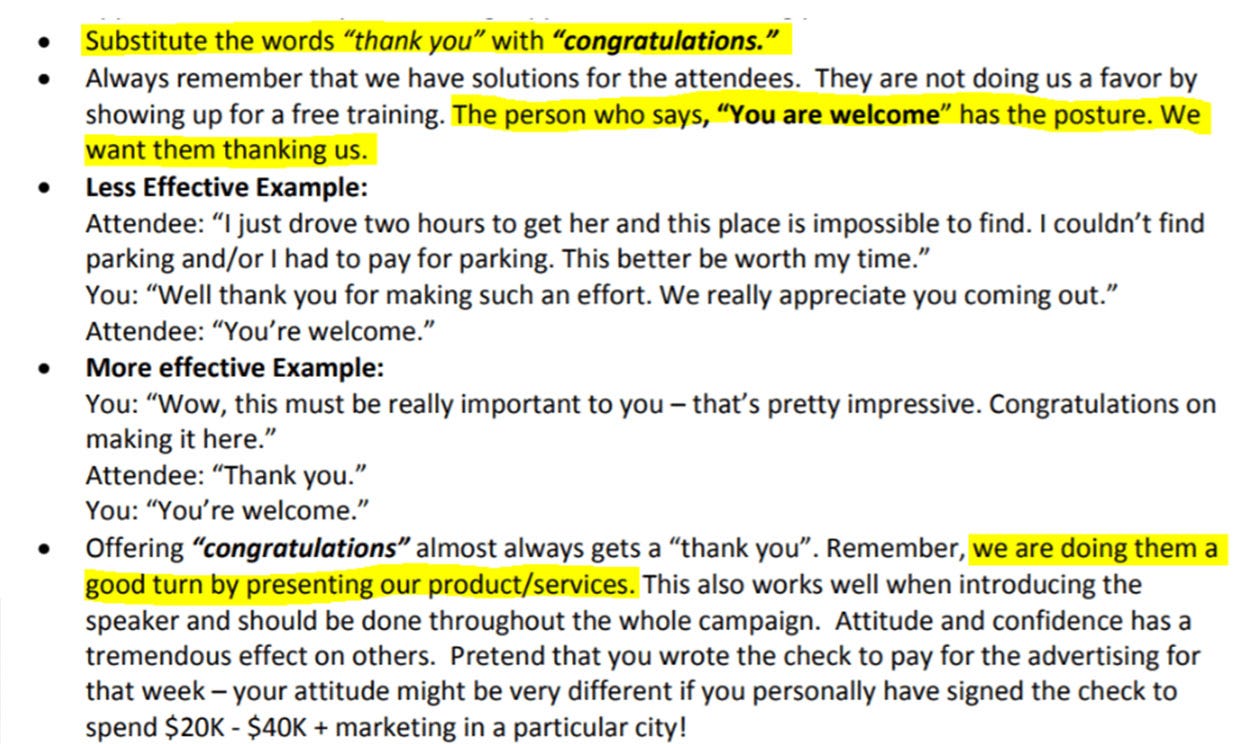
A section from the Trump University playbook Credit: via Daily Beast
Some emails promise exclusivity, like asking the reader to join a limited group of 100 patriots. @TrumpEmail wrote that he or she had received more than 100 emails claiming Trump “noticed” something about the recipient. The Trump U playbook says “the words ‘I noticed’ have a powerful subconscious effect of people because they send a subliminal message to them they they stood out in the crowd.” A number of emails claim Trump himself noticed that the recipient hadn’t donated recently.
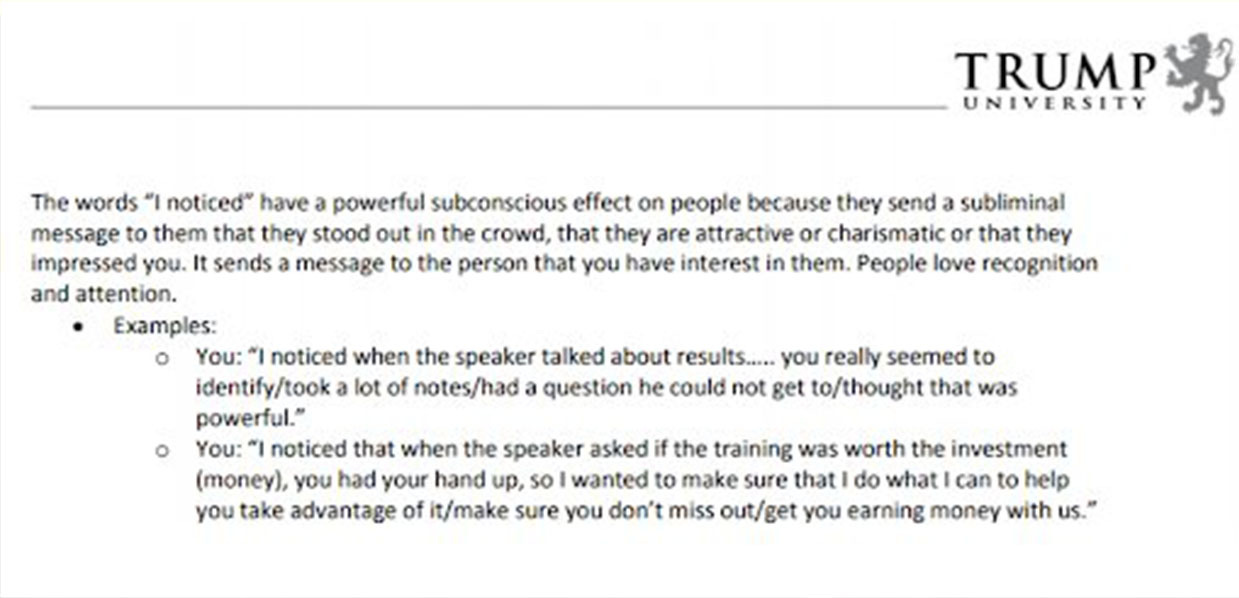
A section from the Trump University playbook Credit: via Daily Beast
Other emails pressure subscribers to donate through time-sensitive offers or scarcity — you have been selected to purchase one of 50 of a limited-edition item!!, for example — or they ask the recipient to join an exclusive community, like becoming one of Trump’s top 500 supporters to receive an “Executive Membership Card.”
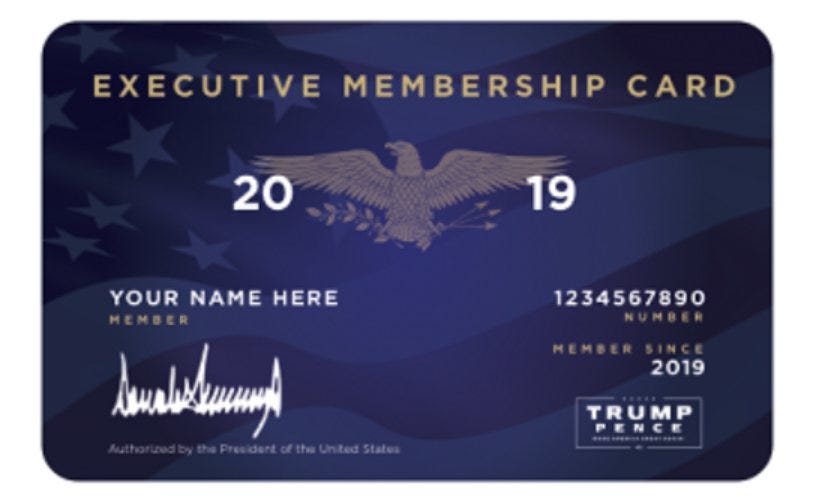
An “Executive Membership Card” offered to some Trump donors
“Political fundraising is not a long-term game, and Trump's email marketing team knows this,” Howland, the vice president at 97th Floor said. If it were easier to unsubscribe from the mailing list, he said, “I imagine they'd be experiencing massive unsubscribes regularly.”
This article was originally published as an exclusive for Yello membership subscribers. Upgrade your subscription to get access to more independent journalism about visual politics like this, delivered every week. Subscribe now for 20% a subscription for a limited time:





